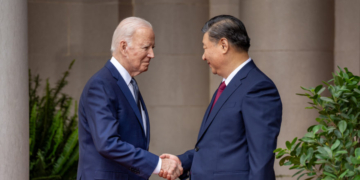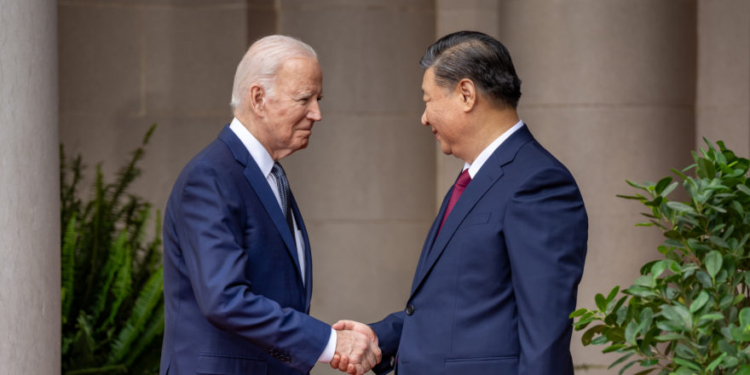China’s wealthiest citizens are resorting to dubiously legal methods to get their money out of the country as economic turmoil and a failing property market loom over the nation, according to the Wall Street Journal Wednesday.
The richest in the country are using various methods to circumvent the $50,000 foreign exchange limit, such as buying cryptocurrency, paintings or overpaying for imports among other methods, according to the WSJ. From the last half of 2023 to June this year, over $250 billion in assets has left the country, according to a WSJ analysis of Census and Economic Information Center data.
“Five or 10 years ago if you were a Chinese person you could put your money in real estate and have a way of growing your wealth,” Martin Rasmussen, senior strategist at research firm Exante Data told the WSJ. “That is not by any means attractive anymore.”
A similar outflow occurred in 2015 and 2016, with Chinese citizens purchasing over $200 billion in foreign assets, according to the WSJ in 2016.
China’s economic growth is projected to slow down by 4.5% in 2025, according to the International Monetary Fund (IMF) in May. The “ongoing housing market correction” is a large part of the economic downturn, as an estimated $18 trillion in value was wiped from the sector since 2021, according to the WSJ.
Top Chinese developer Evergrande was ordered to be liquidated in January by a Hong Kong court after it failed to restructure in the face of more than $300 billion in liabilities. Before the company’s collapse, China was already projected to hemorrhage at least $65 billion to foreign investments, with the Evergrande collapse accelerating the capital movement.
Beijing is publicly making examples of people it catches using illicit methods to transfer capital overseas, such as one group featured on state TV network CCTV that reportedly helped move $112 million worth of Chinese Yuan, according to the WSJ. The State Administration of Foreign Exchange also publishes records of people punished for violating its controls publicly.
Punishments usually include fines around half of the amount illegally transferred, or sometimes criminal charges, according to the WSJ.
Even for China’s ultra-rich with overseas connections, it’s getting harder to evade the government’s crackdown on capital leaving the nation, private bankers told the WSJ. The flight signals a lack of confidence in the economy as Chinese lawmakers feel the pressure to stabilize the currency and manage an aging population.
One method involves buying paintings to be sold in Hong Kong at an auction, but keeping the profit from the sale in U.S. currency on an offshore account based in the city, where the mainland’s capital controls don’t apply, according to the WSJ.
Newer methods to transport currency utilize cryptocurrency, which is bought by a third-party facilitator, stored on hard drives then converted to dollars overseas, according to the WSJ. While China banned crypto trading in 2021, crypto wallets are still allowed.
A spokesperson from the Chinese embassy told the Daily Caller News Foundation that the outflow of capital was slightly improving during the second quarter of the year, and that the government has implemented a “series of policies” since late September to stabilize the housing market. The spokesperson added that the new policies have doubled new home sales and tripled “second-hand” home sales.
Editor’s note: This article has been updated to include comment from the Chinese embassy.
(Featured Image Media Credit: Flickr/Official White House Photo by Carlos Fyfe)
All content created by the Daily Caller News Foundation, an independent and nonpartisan newswire service, is available without charge to any legitimate news publisher that can provide a large audience. All republished articles must include our logo, our reporter’s byline and their DCNF affiliation. For any questions about our guidelines or partnering with us, please contact [email protected].



























 Continue with Google
Continue with Google